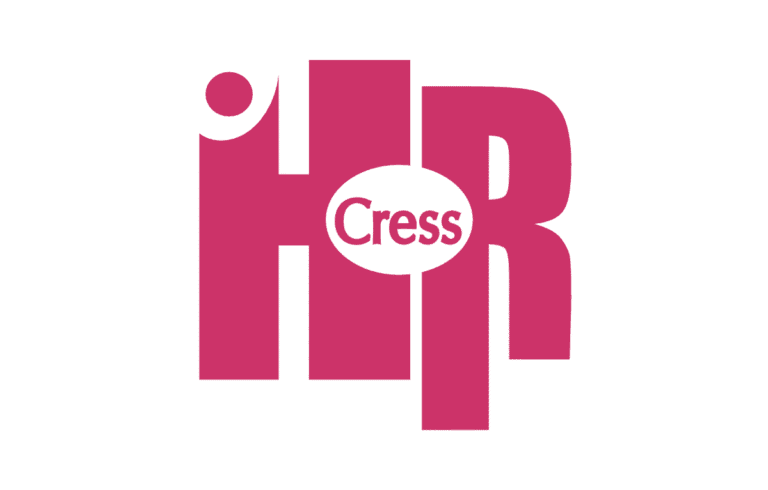From AI-powered customer service to hyper-local marketing strategies, today’s small businesses are embracing tools and tactics once reserved for big corporations. Yes, the playing field is leveling, but agility is the new iron-clad additive. Entrepreneurs who adapt quickly—by streamlining operations, personalizing experiences, and building resilient teams will survive and flourish. These small business trends aren’t some random, fleeting jargon. They’re blueprints for building a future-ready business that resonates with modern consumers and stands out in a crowded market.
As the business landscape continues to evolve at a rapid pace, staying ahead of the curve isn’t only smart but also critical. Whether you’re running a local shop, growing an online brand, or anything in between, these five small business trends are reshaping how companies operate, connect, and compete in 2025.
1. Digital Marketing Small Business Trends
Gone are the days of one-size-fits-all campaigns. In 2025, digital marketing is all about personalization powered by data. Small businesses are leveraging several methods.
• Behavioral Targeting
In 2025, small businesses are leveraging behavioral targeting to connect with customers in more meaningful and personalized ways. By analyzing user actions like browsing history, purchase patterns, and engagement behaviors. Brands can craft messages that feel timely, relevant, and intuitive. Whether it’s sending a follow-up offer after cart abandonment or showcasing products based on past interests, behavioral targeting transforms generic outreach into strategic storytelling. The result? Higher conversion rates, stronger customer loyalty, and marketing that feels less like noise and more like a helpful nudge. Learn more about Behavioral Targeting at Mailchimp.
• Interactive Content To Boost Engagement
In the evolving digital landscape, small businesses are turning to interactive content like quizzes, polls, and assessments to spark engagement and gather valuable insights. These tools not only entertain but also educate, guiding users through personalized experiences that reflect their needs and preferences. Whether it’s a “Find Your Perfect HR Strategy” quiz or a poll on hiring challenges in the trades, interactive content taps into curiosity while subtly driving conversions. As attention spans shrink and competition grows, this trend empowers small brands to stand out, build trust, and foster two-way conversations that fuel smarter marketing.
• Micro-Influencer Partnerships to Build Trust Within Niche Communities
As digital marketing becomes more relationship-driven in 2025, small businesses are increasingly partnering with micro-influencers, trusted voices within tightly knit communities, to amplify their message. These influencers may have smaller followings, but their authenticity and deep connection with their audience make them powerful allies for brands seeking credibility and relevance. Whether it’s a local HR consultant collaborating with a trades-focused content creator or a small wellness brand teaming up with a regional fitness coach, micro-influencer partnerships help small businesses tap into loyal networks, spark meaningful engagement, and build trust where it matters most. Forbes has an in-depth post worth checking out.
2. Generative & Integrated AI Business Trends 2025
AI isn’t just for tech giants anymore. In 2025, small business trends will be more than ever geared toward generative and integrated AI. These tools save time, reduce costs, and enhance customer experience, without needing a full-time tech team.
• Generative AI
Generative AI is becoming a game-changer for small businesses looking to scale their content without sacrificing quality or voice. From crafting blog posts and social captions to generating customer service scripts and product descriptions, AI tools are helping entrepreneurs save time while maintaining a consistent brand presence. What once required a full creative team can now be streamlined with smart prompts and intuitive platforms. This allows small business owners to focus on strategy, storytelling, and connection. The key? Using AI as a creative partner, not a replacement, to enhance authenticity and efficiency across every touchpoint.
• Integrated AI
As small businesses embrace smarter operations, integrated AI within platforms like CRMs and project management tools is transforming how teams manage tasks, leads, and client relationships. These AI-powered systems can now automate repetitive workflows like follow-up emails, task assignments, and data entry, freeing up valuable time and reducing human error. For small teams juggling multiple roles, this means greater efficiency, faster decision-making, and more personalized customer experiences. The trend reflects a shift from manual hustle to strategic automation, where AI quietly handles the backend so business owners can focus on growth and connection.
3. Cybersecurity
With rising cyber threats targeting all businesses, cybersecurity has become a top priority. It’s advised that companies should invest in multi-factor authentication and regular security audits.
• Zero-Trust Security Models to Protect Sensitive Data
In 2025, adopting a zero-trust security model is no longer optional; it’s a critical small business strategy for safeguarding sensitive data in an increasingly digital world. Unlike traditional perimeter-based defenses, zero-trust assumes that no user or device is automatically trustworthy, requiring continuous verification across every access point. For small businesses handling employee records, client information, or financial data, this approach minimizes risk and strengthens resilience against cyber threats. As remote work and cloud-based tools become the norm, integrating zero-trust principles into daily operations ensures that security scales with growth without compromising agility or trust.
• Employee Training Programs to Prevent Phishing and Breaches
Small businesses are recognizing that cybersecurity isn’t just about firewalls, it’s about people. Employee training programs focused on phishing prevention and breach awareness are becoming a vital part of small business strategy. With increasingly sophisticated scams targeting unsuspecting staff, proactive education helps teams spot red flags, respond appropriately, and protect company data. From simulated phishing exercises to bite-sized video modules, these programs empower employees to become the first line of defense. For small businesses, investing in cyber-savvy teams is essential for building a culture of vigilance and trust.
• Affordable Cybersecurity Platforms for Small Teams
As cyber threats grow more complex, small businesses are turning to affordable cybersecurity platforms designed specifically for lean teams with limited IT resources. These solutions offer streamlined protection like endpoint security, threat detection, and automated patching without the enterprise-level price tag or complexity. Many platforms now feature intuitive dashboards, AI-driven alerts, and scalable plans that adapt as businesses grow. By prioritizing affordability and ease of use, these tools empower small teams to safeguard sensitive data, maintain client trust, and stay compliant with evolving regulations, all while keeping overhead low.
4. E-Commerce
E-commerce is expanding beyond the brick-and-mortar storefront, as online shopping continues to surge. That’s nothing new, but the way customers are buying is.
• Social Commerce Platforms
One of the most dynamic small business trends is the rise of social commerce, where platforms like Instagram and TikTok double as storefronts and marketing engines. Small brands are leveraging shoppable posts, live product demos, and influencer collaborations to turn casual scrolling into instant sales. These platforms offer powerful tools for storytelling, audience targeting, and real-time engagement, making it easier than ever for small businesses to showcase their products and connect with buyers directly. As consumer habits shift toward mobile-first experiences, social commerce is becoming a must-have strategy for visibility, conversion, and community-building.
• Subscription Models
Among today’s most sustainable small business trends is the adoption of subscription models to generate predictable, recurring revenue. Whether it’s curated product boxes, exclusive digital content, or ongoing services, small businesses are embracing this approach to deepen customer loyalty and smooth out cash flow. Subscriptions not only create consistent income but also foster long-term relationships by delivering ongoing value. With flexible pricing tiers and personalized offerings, even niche businesses can tap into this trend to scale more strategically and build a reliable revenue foundation.
• Omnichannel Experiences
A standout among emerging small business trends is the shift toward omnichannel experiences that seamlessly integrate digital and physical interactions. From QR codes in-store that link to exclusive online content, to curbside pickup options promoted via social media, small businesses are finding creative ways to meet customers wherever they are. This approach not only enhances convenience but also strengthens brand consistency across platforms. By blending e-commerce, social engagement, and in-person service, small businesses can create a cohesive journey that builds trust, boosts retention, and drives sales across multiple channels.
5. 5G Connectivity
5G is supercharging connectivity and innovation. The rollout of 5G is transforming how small businesses operate, especially in remote and mobile environments.
• Faster Data Transfer
As remote collaboration and digital operations become the norm, one of the most impactful small business trends is the demand for faster data transfer to support cloud-based tools and video conferencing. High-speed connectivity enables smoother virtual meetings, real-time document sharing, and more responsive cloud platforms, all essential for productivity and client engagement. For small businesses, investing in reliable internet infrastructure and scalable tech solutions is more than convenience; it’s a competitive edge. With faster data transfer, teams can work smarter, serve clients better, and adapt quickly in an increasingly digital marketplace.
• Enhanced Mobile Experiences
Small business trends shaping 2025 are the push for enhanced mobile experiences that serve both customers and employees. From mobile-friendly websites and app-based loyalty programs to on-the-go HR platforms and scheduling tools, small businesses are prioritizing convenience and accessibility. These mobile solutions streamline operations, improve customer satisfaction, and empower teams to stay connected and productive from anywhere. As mobile usage continues to dominate digital behavior, creating seamless, intuitive mobile experiences is no longer optional. It’s a strategic necessity for growth and retention.
• New Opportunities and Possibilities
Innovative technologies like augmented and virtual reality (AR/VR), the Internet of Things (IoT), and real-time analytics are unlocking exciting new possibilities and opportunities within small business trends. These tools are no longer reserved for large enterprises. forward-thinking small businesses are using AR/VR for immersive product demos and training, IoT for smarter inventory and equipment monitoring, and real-time analytics to make faster, data-driven decisions. By embracing these emerging technologies, small businesses can elevate customer experiences, streamline operations, and gain a competitive edge in increasingly tech-savvy markets.
Conclusion: Adapt & Innovate
These small business trends are not buzzwords. They’re strategic shifts that can help you grow smarter, faster, and more resilient. Whether you’re refining your marketing, exploring AI, or boosting your cybersecurity, the key is to stay curious, agile, and proactive.


